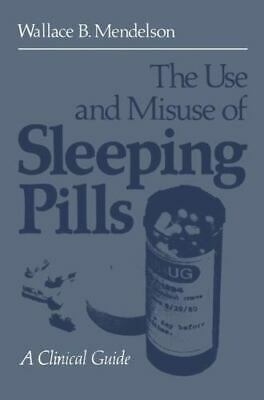
Sleep, or hypnotic, medications, often referred to as sleep aids, are a group of psychoactive medications whose primary purpose is for the treatment of sleep disorders and for the temporary treatment of insomnia. There are many types of sleep medicines and not all can be recommended for use in the treatment of the disorder.
Sleeping pills or sleeping aids work by regulating the body's sleep cycle and keeping it in a normal pattern. They work by suppressing the brain's natural sleep drive and by increasing the body's production of natural sleep hormones. The goal of sleeping pills is not to treat insomnia but rather temporarily alleviate its effects. Although some sleep medications, such as Ambien, work very well, they are known to have many unpleasant side effects, including drowsiness during sleep.
Trousseau, Lunesta, Ambien and Valium are sedatives and tranquilizers. These drugs are prescribed to people who need to be asleep for long periods of time, for example, overnight. Because they are tranquilizers, they cause no change in the sleep cycle; however, the drug's action on the central nervous system makes it less likely to cause the jitters that often accompany insomnia.
Tricyclics are also available as sleep aids. These are generally taken before you go to bed.
Although these drugs do to improve your ability to relax, they can also cause some serious side effects
Benzodiazepines are often prescribed to help patients with insomnia. They work by decreasing the amount of serotonin, the neurotransmitter that is responsible for the relaxation of muscle and brain functions. However, like sleeping pills and tranquilizers, benzodiazepines can have unpleasant side effects.
Sleeping pills may also be prescribed by doctors for other health conditions, such as anxiety, depression and alcohol dependence. These sleeping pills are not designed to provide long-term relief from a sleep disorder, but rather to provide short-term relief.

Some drugs, such as Ambien, contain ingredients that can cause sleepiness during the day
In other cases, sleeping pills work by suppressing the body's natural sleep drive and increasing the amount of natural sleep hormones. These are often used to treat conditions that interfere with sleeping. For example, someone who is suffering from insomnia may be unable to sleep through the night because of jet lag, a temporary increase in light or noise exposure, or a shift in the body's circadian rhythm.
There are many different types of sleep aid medications, including those that are considered by some to be "legal" in some states. They include diazepamhydramine (Valium) and phenobarbital (Deslox).
Sleep deprivation is often caused by prolonged periods of lying down. When a person is asleep, they may not be aware that they are actually passing through a period of sleep. Many times, this means that when waking up, they will not be able to remember having a good sleep. Most sleeping pills, although they are not sleeping aids in the strictest sense, can be used as sleep aids in order to overcome the lack of quality sleep caused by these conditions.
Sleep medications do not usually involve anything except the replacement of the sleep itself. They do not alter the way that the brain and body think or react to the stresses of daily life. This is a common misconception that many people believe that they are doing when taking them. For example, in the case of diazepamhydramine, a sleeping pill, the effects of the sleep pill are not intended to create a feeling of wakefulness and alertness.
On the other hand, a sleeping pill is designed to put the body into a state of relaxation so that it can function at its optimum level throughout the night. Because of their tranquil properties, sleeping pills are often used to treat people who experience depression, anxiety, or post-traumatic stress disorder. This is why they are often prescribed for patients who suffer from insomnia.
The list of side effects of these medications is extensive. The best advice is to talk to your doctor before taking a sleeping pill or any other prescription medication for that matter.
Because they are addictive, the majority of sleeping pills will lose their effect after several weeks or months. They will lose their effect if they are not taken at the right time and in the right dosage. If they are used incorrectly, users may be encouraged to take more than the recommended dose. They can also cause addiction if they are taken without consulting your doctor or if you don't take them as directed.